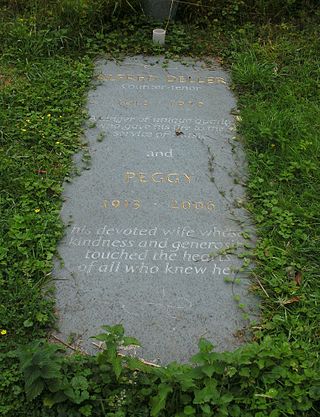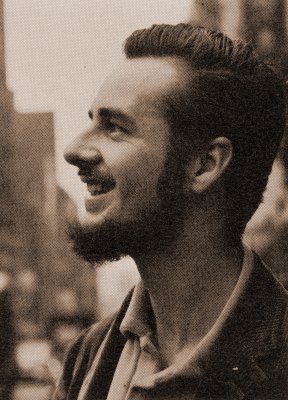Related Research Articles

Alfred George Deller, CBE, was an English singer and one of the main figures in popularising the return of the countertenor voice in Renaissance and Baroque music during the 20th century.
"All My Trials" is a folk song which became popular during the social protest movements of the late 1950s and 1960s. Alternative titles it has been recorded under include "Bahamian Lullaby" and "All My Sorrows." The origins of the song are unclear, as it appears to not have been documented in any musicological or historical records until after the first commercial recording was released on Bob Gibson's 1956 debut album Offbeat Folksongs.
"Scarborough Fair" is a traditional English ballad. The song lists a number of impossible tasks given to a former lover who lives in Scarborough, North Yorkshire. The "Scarborough/Whittingham Fair" variant was most common in Yorkshire and Northumbria, where it was sung to various melodies, often using Dorian mode, with refrains resembling "parsley, sage, rosemary and thyme" and "Then she'll be a true love of mine." It appears in Traditional Tunes by Frank Kidson published in 1891, who claims to have collected it from Whitby.

"Barbara Allen" is a traditional folk song that is popular throughout the English-speaking world and beyond. It tells of how the eponymous character denies a dying man's love, then dies of grief soon after his untimely death.
Edward Potts McCurdy was an American folk singer and songwriter. His most well-known song was the anti-war "Last Night I Had the Strangest Dream", written in 1950.

Gilbert Vandine "Cisco" Houston was an American folk singer and songwriter, who is closely associated with Woody Guthrie due to their extensive history of recording together.

Jean Ruth Ritchie was an American folk singer, songwriter, and Appalachian dulcimer player, called by some the "Mother of Folk". In her youth she learned hundreds of folk songs in the traditional way, many of which were Appalachian variants of centuries old British and Irish songs, including dozens of Child Ballads. In adulthood, she shared these songs with wide audiences, as well as writing some of her own songs using traditional foundations.

"Matty Groves", also known as "Little Musgrave and Lady Barnard" or "Little Musgrave", is a ballad probably originating in Northern England that describes an adulterous tryst between a young man and a noblewoman that is ended when the woman's husband discovers and kills them. It is listed as Child ballad number 81 and number 52 in the Roud Folk Song Index. This song exists in many textual variants and has several variant names. The song dates to at least 1613, and under the title Little Musgrave and Lady Barnard is one of the Child ballads collected by 19th-century American scholar Francis James Child.

B. B. & Q. Band, was an Italian-American post-disco band, which formed in 1979 and disbanded in 1987.
"The Wild Rover" is a very popular and well-travelled folk song. Many territories have laid claim to having the original version.

Paul Clayton was an American folksinger and folklorist who was prominent in the folk music revival of the 1950s and 1960s.
Alan Mills was a Canadian folksinger, writer, and actor. He was best known for popularizing Canadian folk music, and for his original song, I Know an Old Lady Who Swallowed a Fly. He appeared on several radio and television programs and in movies.
Allan Thomas Paley was an American guitarist, banjo and fiddle player. He was best known for his work with the New Lost City Ramblers in the 1950s and 1960s.
"He's Got the Whole World in His Hands" is a traditional African-American spiritual, first published in 1927. It became an international pop hit in 1957–58 in a recording by English singer Laurie London, and has been recorded by many other singers and choirs.
Charles Henry "Casey" Anderson was an American blues and folk singer, songwriter and guitarist. From 1959 to 1976, he recorded ten albums and some fifteen singles on various labels, most notably Elektra and Atco.
"The Sprig of Thyme", "The Seeds of Love", "Maiden’s Lament", "Garners Gay", "Let No Man Steal Your Thyme" or "Rue" is a traditional British and Irish folk ballad that uses botanical and other symbolism to warn young people of the dangers in taking false lovers. The song was first documented in 1689 and the many variants go by a large number of titles.
Frank Noah Proffitt was an Appalachian old time banjoist who preserved the song "Tom Dooley" in the form we know it today and was a key figure in inspiring musicians of the 1960s and 1970s to play the traditional five-string banjo.
Oscar Brand was a Canadian-born American folk singer-songwriter, radio host, and author. He released nearly 100 albums and composed hundreds of songs, among them Canadian patriotic songs, songs of the U.S. Armed Forces, sea shanties, presidential campaign songs over the years, and songs of protest. His discography is extensive.
Anthony D. "Tony" Saletan is an American folk singer, children's instructional television pioneer, and music educator, who is responsible for the modern rediscovery, in the mid-1950s, of two of the genre's best-known songs, "Michael Row the Boat Ashore" and "Kumbaya". In 1955, he was the first performer to appear on Boston's educational television station, WGBH. In 1969, Saletan was the first musical guest to appear on Sesame Street.
Cynthia Gooding was an American folk singer who recorded traditional songs from various countries for Elektra Records in the 1950s and 1960s. Judy Collins wrote that she had been "inspired" by her.
References
- 1 2 3 Biography by Bruce Eder, Allmusic.com. Retrieved 21 June 2016
- ↑ Songs of Delinquency, Discogs.com. Retrieved 21 June 2016
- ↑ Elektra ‘Master’ Discography—Album listing. Retrieved 21 June 2016
- ↑ "Mattie Groves", SecondhandSongs.com. Retrieved 21 June 2016
- ↑ "Shep Ginandes Sings Folksongs", Elektra ‘Master’ Discography—Album listing. Retrieved 21 June 2016
- ↑ Shep Ginandes, mudcat.org. Retrieved 21 June 2016
- ↑ "MD Busted for Selling Dope", Hawai'i Free Press, April 17, 2012. Retrieved 21 June 2016